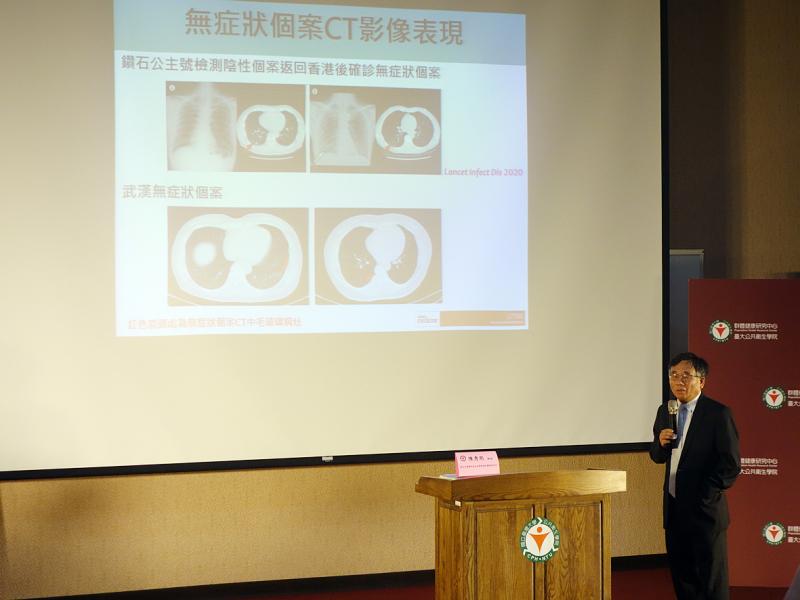A Belgian man who tested positive for COVID-19 in Taiwan last week is likely to have contracted the disease in Taipei in late June, National Taiwan University (NTU) College of Public Health vice dean Tony Chen (陳秀熙) said yesterday.
The Central Epidemic Command Center (CECC) on Saturday reported that the man, who is in his 20s, came to Taiwan for work on May 3 and tested positive on Wednesday last week as he was about to depart.
The man in March reported loss of taste and smell, the center said, adding that he worked in Changhua County, but visited Taipei several times, and traveled to Yilan County and Taichung this month.
Although the center has not listed the case as imported or locally acquired, health experts have said that the man might have contracted the disease in Taiwan.
There are four possible scenarios for how the man was infected: He contracted it in Belgium, he had close contact with an infected traveler on his way to Taiwan, he was exposed to an infected person in a local community, or he contracted the disease twice — in Belgium and in Taiwan, Chen said.
Among the four scenarios, contracting the disease in Belgium or being infected twice are the least likely, he said.
The viral load should have significantly reduced after so many weeks if he was infected in Belgium, while genome sequencing of the virus would need to be conducted to determine if he contracted it twice, Chen said.
Based on the cycle threshold value of a real-time reverse transcription-polymerase chain reaction test that the man had, he might have been exposed to COVID-19 from June 20 to 26, which includes time that he was in Taipei, Chen said.
“It is impossible that Taiwan has no domestic cases,” he said. “We are only testing people who have symptoms, so we might miss a few asymptomatic cases.”
Tests conducted among people onboard the Diamond Princess cruise ship, a long-term care facility and in some US states show that the incidence rate of asymptomatic or pre-symptomatic cases could be as high as 60 percent, he said.
People who are asymptomatic or pre-symptomatic might be infectious, although less so than people with symptoms, he said.
While most people in Taiwan who might have had COVID-19, but were asymptomatic, should have recovered by now, three cases — the Belgian, a Japanese student and a Thai migrant worker, who tested positive for the coronavirus before or upon returning to their native country — show that local infections are possible, Chen said.
The three cases might have had low viral loads, so people would have had to have an extended time of close contact with them for the disease to be transmitted, he said, adding that so far contacts of the cases have all tested negative for the disease.
Risk stratification and precise testing should be conducted, especially among six groups at higher risk of infection from an asymptomatic cases, he said.
The groups are: people in healthcare facilities, people in long-term care centers, cruise ship passengers, migrant workers, people at workplaces or other places that they share with foreign nationals, and people in other situations where they have close contact with others for extended periods, he said.
People should keep social distancing, wearing a mask and washing their hands frequently, he said.
Source: Taipei Times - 2020/08/05





















